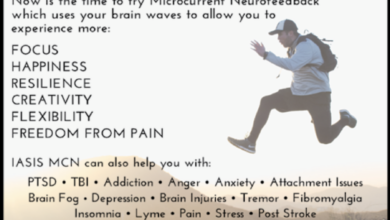B12 Deficiency, Are you at Risk?
One of the most oft neglected health topics is the lack of information and testing on B12 levels and treatment of deficiencies. There are many causes for vitamin B12 deficiency. Surprisingly, some of them are practices often undertaken to improve health: a vegetarian or vegan diet, weight-loss surgery and the use of anesthetic gas (nitrous oxide) for dental procedures.
Plants do not contain vitamin B12. The only foods that deliver it are meat, eggs, poultry, dairy products, and other foods from animals. Strict vegetarians and vegans are at high risk for developing a B12 deficiency if they don’t eat grains that have been fortified with the vitamin or take a vitamin supplement. People who have stomach stapling or weight-loss surgery are more likely to be low in vitamin B12 because the operation interferes with the body’s ability to extract vitamin B12 from food.
Conditions that interfere with food absorption, such celiac or Crohn’s disease, can also cause B12 deficiency. So can the use of commonly prescribed heartburn drugs, which reduce acid production in the stomach (acid is needed to absorb vitamin B12). The condition is more likely to occur in older people due to decreased stomach acid production that occurs with aging.
Recognizing a B12 deficiency
Vitamin B12 deficiency can be slow to develop, causing symptoms to appear gradually and intensify over time. It can also come on relatively quickly. Given the array of symptoms it can cause, the condition can be overlooked or confused with something else. Vitamin B12 deficiency symptoms may include:
• anxiety
• insomnia
• strange sensations, numbness, or tingling in the hands, legs, or feet
• difficulty walking (staggering, balance problems)
• anemia
• a swollen, inflamed tongue
• yellowed skin (jaundice)
• difficulty thinking and reasoning (cognitive difficulties), or memory loss
• paranoia or hallucinations
• weakness
• fatigue
• depression like symptoms
While an open, experienced physician may notice the symptoms and be able to detect a vitamin B12 deficiency with a good interview and physical exam, many miss it. There are different tests to confirm the condition, some more reliable than others. Early detection and treatment is important. “If left untreated, the deficiency can cause severe neurologic problems and blood diseases,” says Dr. Bruce Bistrian, chief of clinical nutrition at Harvard-affiliated Beth Israel Deaconess Medical Center.
B proactive!
While many doctors will resist testing; it’s also a good idea to ask about having your B12 level checked if you are over 50 years old, take a proton-pump inhibitor (such as Nexium or Prevacid) or H2 blocker (such as Pepcid or Zantac), tor take metformin (a diabetes drug).
A serious vitamin B12 deficiency can be corrected two ways: weekly shots of vitamin Methyl B12 or daily high-dose Methyl B12 pills. A Naturopath might be your best bet to get set up with this. Dr. Geoff Houghton in Ashland carries Methyl-B12 injectables and treats many health concerns, including B12 deficiency.
If you are over age 50, the Institute of Medicine recommends that you get extra B12 from a supplement, since you may not be able to absorb enough of the vitamin through foods. Our research indicates that the safest, most effective B12 supplement is Methyl-Cobalamin. It is NOT recommended to take Cyanocobalamin, even though it is cheaper. Country Life makes a good Methyl B12 lozenge that can be purchased at Shop-n-Kart.
Recommended reading for your library: Could It Be B12? An Epidemic of Misdiagnoses, by Sally M. Pacholok and Jeffrey J. Stuart
(excerpted from https://www.health.harvard.edu/blog/vitamin-b12-deficiency-can-be-sneaky-harmful-201301105780
This information is not to be construed as medical advice, please consult a Clinician experienced in B12 level management.




